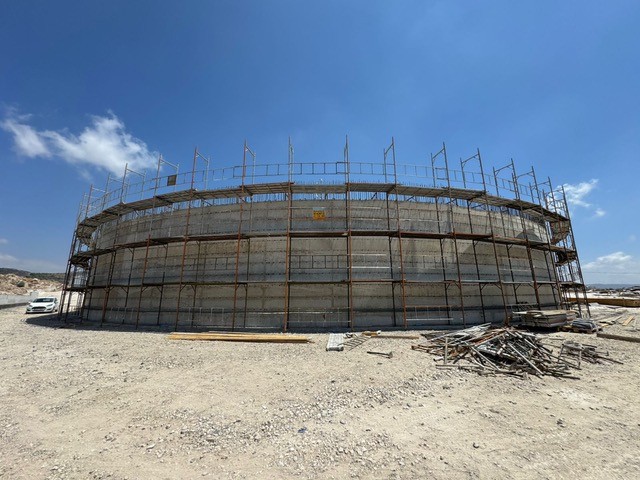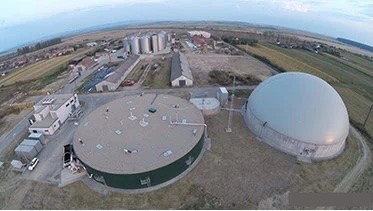The use and benefits offered by a new private unit that is expected to start operating within the first half of 2026 in the industrial area of Agia Varvara in Paphos will be dual, which will convert organic waste into biogas and then into electricity, which will be channelled into the grid.
Essentially, the unit on the one hand will offer solutions in the management of organic waste and on the other hand it will produce electricity, at a relatively low cost and with storage, helping - even to some extent - in the big bet of electricity adequacy, but also in waste management.

According to information gathered by "F" from Christos Ioannou, one of the three directors of BioElectric, the company that owns the unit, the cost, until the completion of the construction works and the operation of the project, will reach €11 million, while the unit will be able to produce up to 2.3 MW, essentially achieving enough electricity to supply electricity to thousands of households every year.
According to Mr. Ioannou, construction work began last February and, if everything goes according to plan, the unit is estimated to start operating in March 2026.
How it will work
According to the company, the plant will operate by the method of anaerobic digestion, which allows the conversion of all kinds of organic waste into biogas.
Subsequently, biogas will be used to produce electricity, which according to initial estimates will have a relatively low production cost, close to 5 cents per kilowatt hour.
Although similar types of projects operate in Cyprus, usually by livestock farmers and a slaughterhouse, however, these are limited to a private level, in contrast to this project, which is the first large biogas production unit in Cyprus.

Characteristically, the plant has the capacity to process more than 100,000 tons of organic waste per year. A number that covers not only the needs of Paphos, but also of other districts.
As noted, the unit will be able to operate at full speed with the implementation of "Pay as I Throw", since with this plan there will be proper sorting at the source and organic waste will be separated from the rest.
To begin with, as we are informed, some contacts have already been made with hotels, restaurants and other professional bodies, which are already proceeding with the correct sorting so that their organic waste is collected and transported to the specific unit at the start of its operation.
24 hours and with storage
The use of biogas, as mentioned above, will not only have environmental benefits, but also energy, since the use of biogas seems to outweigh the energy produced by other Renewable Energy Sources.
Unlike photovoltaic parks and wind farms (which depend on sunshine and weather conditions), the unit can operate 24 hours a day, producing stable energy at all hours of the day, since it will store biogas and use it to generate electricity throughout the day.
In fact, due to this possibility, the unit avoids cuts – as is the case with other RES – and thus comparatively it can produce, due to all the above reasons, about 10 times more energy than a corresponding photovoltaic park.
Another important point is that the cost of producing energy from biogas is estimated at 5 cents per kilowatt hour, which is close to the cost of producing other RES and is much lower than the cost of conventional production.
With Austrian technology, the unit
BioElectric GCC Ltd, the company implementing the plant, was founded in 2013. According to them, the operation of the project is based on specialized Austrian technology. It is, as they note, the most modern and efficient biogas plant in Cyprus, which will help both in the energy transition and in the circular economy and green development.
